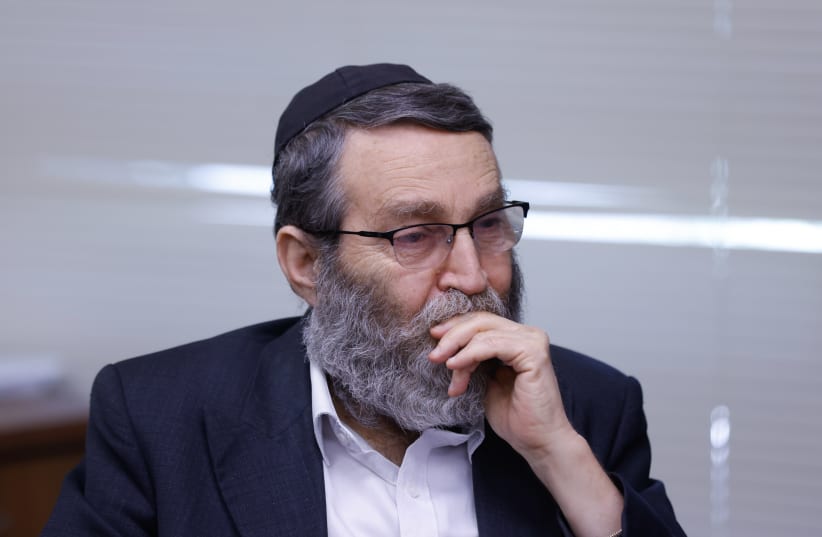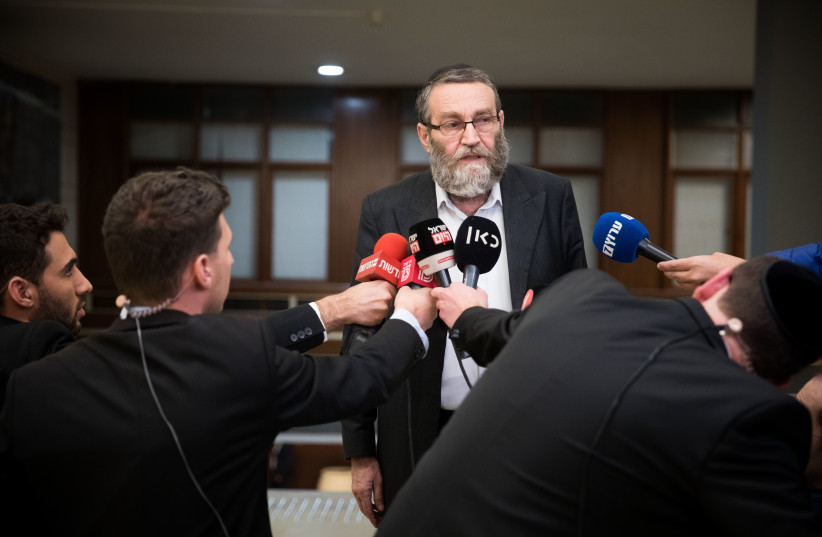An internal rift in the ultra-Orthodox United Torah Judaism Party between the Lithuanian faction Degel Hatorah and hassidic faction Agudat Yisrael has been making headlines in the last week, and its two factions may decide to run separately in the election.
What has caused the rift, and what will happen if they indeed split?
First, the two factions have ideological differences that have grown in the past few years, Degel leader and UTJ chairman MK Moshe Gafni said at a faction conference in Bnei Brak on Tuesday.
“Every hassid must listen to his rebbe, but we listen to our rebbes,” Gafni said at the event, which was held on Tuesday in Bnei Brak. “In public life we joined together, and suddenly we discover that in fundamental issues we are not on the same page. In education, [the military] draft, Shabbat and other basic subjects. We go to our rabbis, hear one thing, return to the faction – and hear something else, and we don’t know where it came from,” Gafni said.
Each of the two factions has a council of rabbis who make decisions on political issues.
“What should have been done is Agudat Yisrael’s Council of Great Torah [Sages] and Degel Hatorah’s Council of Great Torah [Sages] sitting together and making decisions.”
The rift
The two councils used to work well together but the relationship deteriorated in the past couple years, a source from UTJ explained. The disagreement that Gafni mentioned about education was that the Belz Hassidic sect, which is represented in the Knesset by MK Yisrael Eichler, was willing to enter into a government-run educational program to receive funding, while Degel was not.
Another bone of contention had to do with the Draft Law, which is supposed to regulate the haredi sector’s participation in the IDF, and has been an ongoing political battle for decades. In 2019, during the coalition negotiations following the first election of the current cycle, Degel, under Gafni, came to an agreement with other potential coalition partners on a version of the law that it deemed practical. Aguda, then under MK Ya’acov Litzman, rejected the agreement. Yisrael Beytenu leader Avigdor Liberman refused to budge and the coalition talks ended up failing, which led to the second election.
Litzman resigned from the Knesset in January as part of a plea deal with the State’s Attorney’s Office over suspicions that he helped procure a false psychiatric assessment for alleged Australian sex offender Malka Leifer. Litzman also ceased to be the head of the Agudat Yisrael faction and was replaced by Yitzchak Goldknopf, who has not yet served in the Knesset. Gafni criticized Aguda for choosing someone so inexperienced.
In addition, according to an agreement signed between the two factions prior to the previous election, Degel received the No. 1 spot on the Knesset list while Aguda was supposed to receive the first political appointment pick, and for the upcoming election the opposite would occur: Degel would receive the first political appointment, but Aguda would receive the No. 1 slot on the list and the party chairmanship. The party is polling at between six and seven seats. If it receives seven, this means that Agudat Yisrael will receive four MKs, while Degel only three.
"The question is whether we need to run together on an issue that is fundamental for us. According to our count, we bring most of the votes, but come to our rabbis [panting] with our tongues out"
MK Moshe Gafni
Degel is the larger faction, however, and this, along with the issues explained above, has led to discontent with the deal.
“The question is whether we need to run together on an issue that is fundamental for us. According to our count, we bring most of the votes, but come to our rabbis [panting] with our tongues out,” Gafni said at the faction conference.
Degel will probably not break the deal one-sidedly, the source from UTJ said. But some of its representatives are trying to convince the councils that running separately is beneficial. They believe that Aguda will pass the electoral threshold and that the two separately can win back votes of young haredim who shifted over to the Religious Zionist Party, and may earn more seats than if they run separately, the source said.
There are two main dangers with this scenario. First, if either end up not passing the electoral threshold, this may affect the entire Netanyahu bloc and may lead to another coalition without the haredim.
Second, if the parties run separately, it may be easier for Defense Minister Benny Gantz to try and convince either to join a future government. Gafni has reportedly not ruled out joining Gantz offhand, and if the two sides do not have to agree unanimously it may raise the chances of Gafni switching sides. The two parties together are less flexible and less likely to do so, and other parties on the Right may pressure them to remain together.

